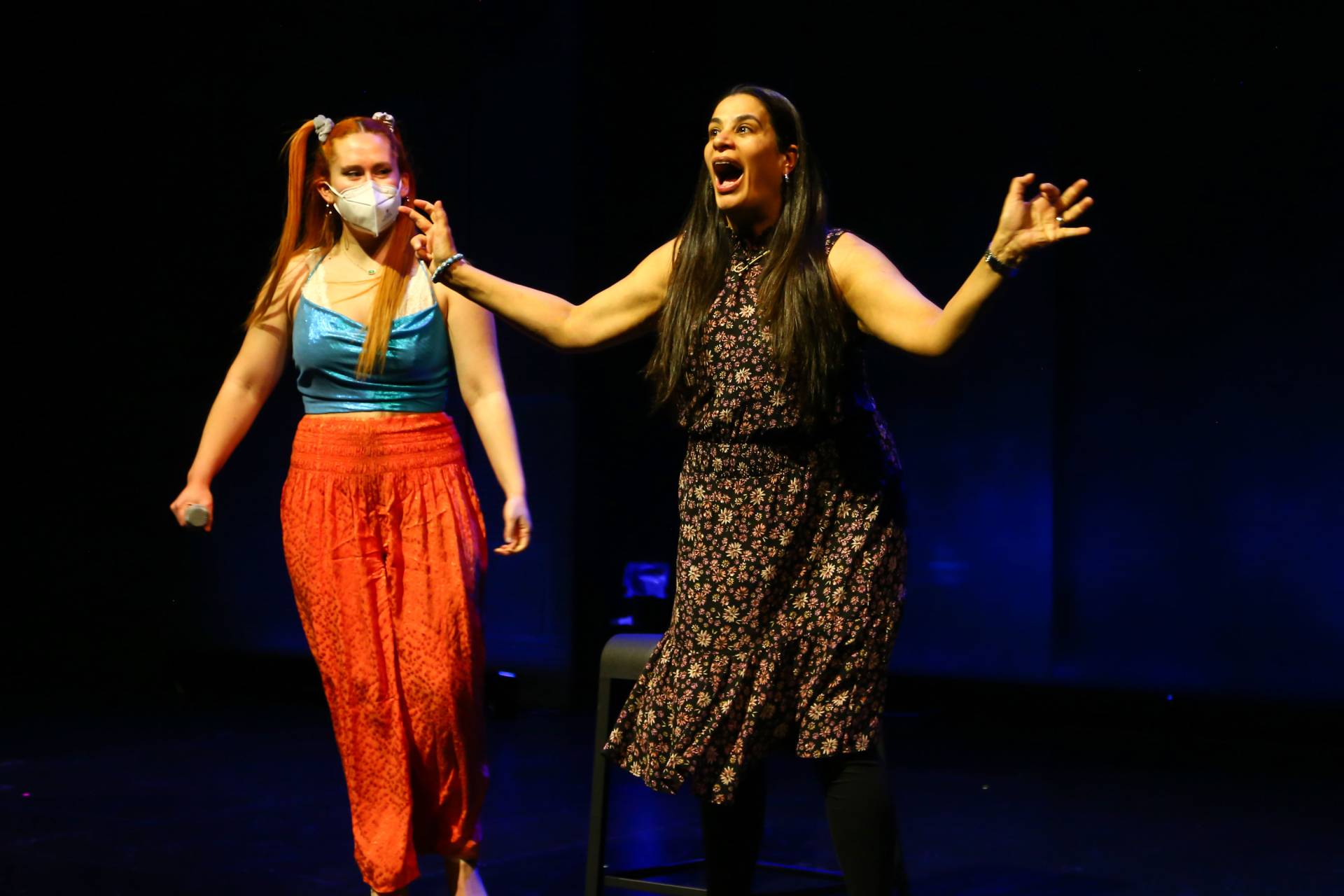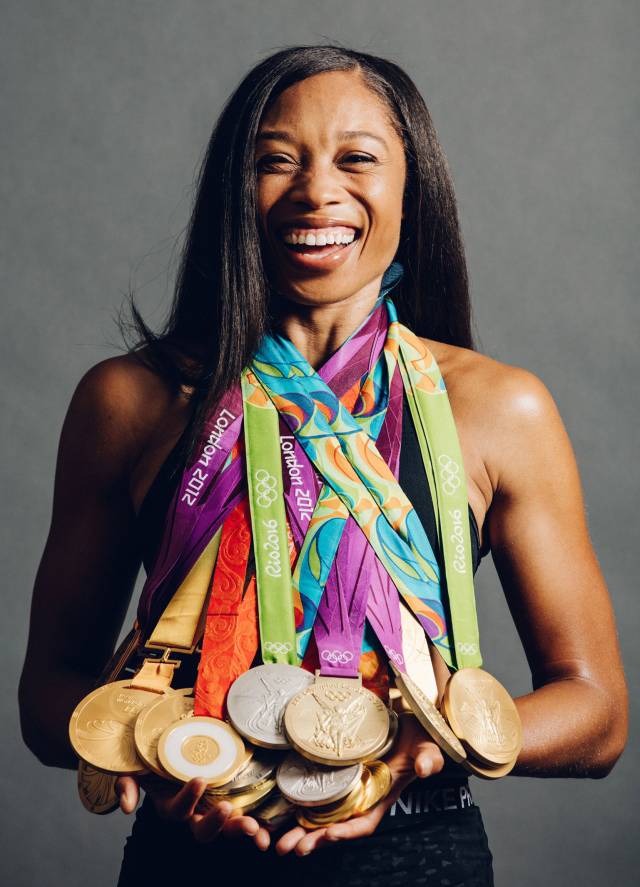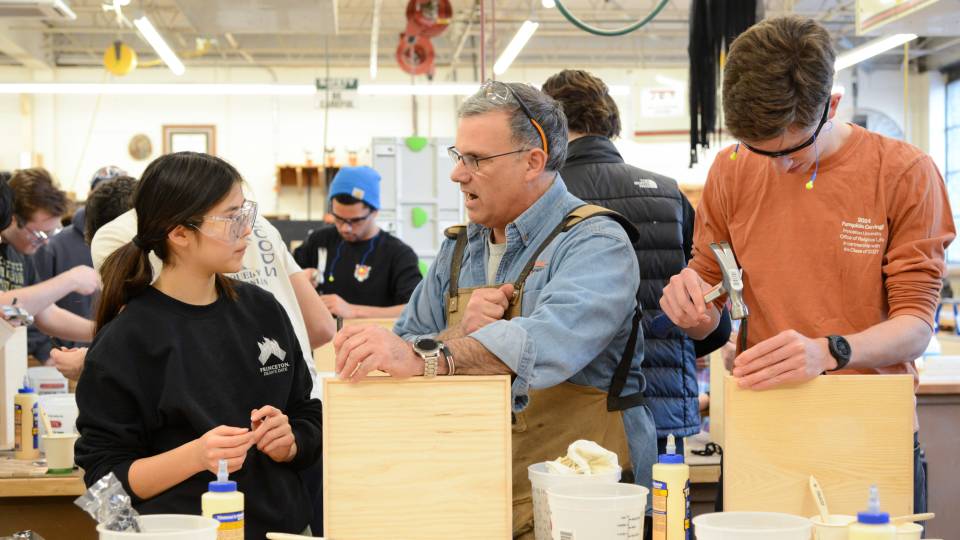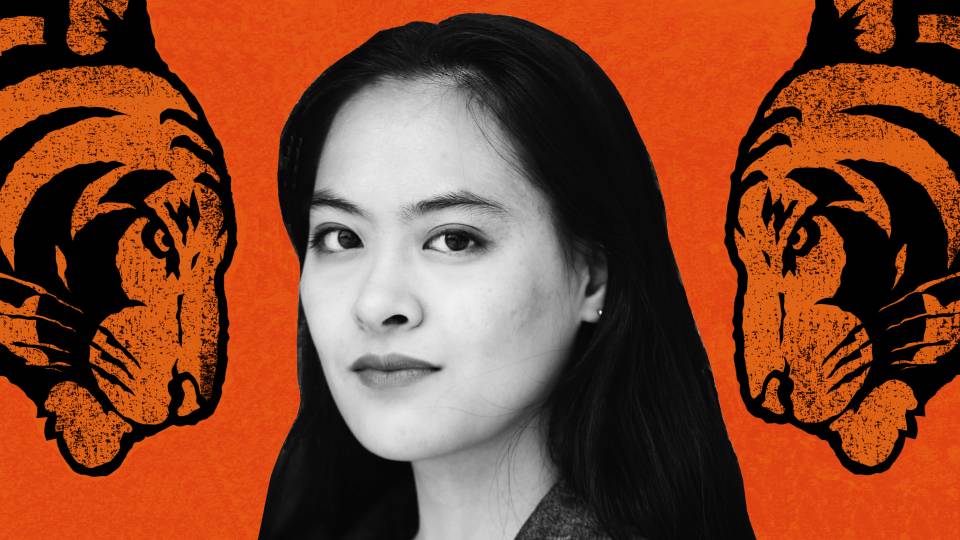Princeton's Wintersession program offers opportunities for discovery and connection. More than 4,000 members of the University community signed up to participate this year.
Learning for the sake of learning is the aim of Princeton University’s Wintersession program. Whether it was Olympic runner Allyson Felix sharing how she overcomes pre-race nerves or tech journalist Kara Swisher touting the virtues of listening closely, invaluable lessons were imparted during the two weeks of workshops, classes, evening events, field trips and conversations.
More than 4,000 members of the University community signed-up to participate in one or more Wintersession offerings from Jan. 10-23. The sessions were led by undergraduates, graduate students, faculty and staff, and also featured alumni and guest speakers.
“Our goal is to offer unexpected, active and intriguing events for everyone,” said Judy Jarvis, director of the Office of Wintersession and Campus Engagement (OWCE), which organizes Wintersession and other campus-wide offerings throughout the year.

More than 450 workshops, classes, evening events and field trips were held during Wintersession, including a hands-on knitting class taught by Amina Shabani, lecturer in Spanish and Portuguese.
Jarvis added: “Wintersession is all about exploration, learning for the sake of learning, and making connections across identities and roles. It is astounding and fantastic that so many undergraduates, graduate students, faculty and staff are ready and willing to share their talents with campus.”
Wintersession featured over 450 wide-ranging programs, including:
- “Dumplings for Dinner,” a cooking lesson with Top Chef winner Melissa King.
- “The Wonderful World of Watercolor,” led by Audrey Zhang, Class of 2025.
- “Limping on The Edge,” a stand-up comedy performance by Lewis Center for the Arts lecturer Maysoon Zayid.
- “Bio Inspired Design: A Lesson From Pinecones,” led by Aimy Wissa, assistant professor of mechanical and aerospace engineering.
- "Basic Car Maintenance," led by Sgt. Sean Ryder of the Department of Public Safety.
- "Introduction to Programming Using Python," led by Matthew Cahn, a lecturer in molecular biology and systems administrator in the Office of Information Technology.
- “Inner Breathing: A Modern Perspective,” led by Tony Qian, an astrophysical sciences graduate student, and Mackenzie Hawkings, a Class of 2015 graduate.
- “A Way Out of No Way: Black Entrepreneurship in the U.S.” with Morehouse College business professor Keith Hollingsworth and Princeton Keller Center fellow Ihsan Beezer.
- "Skiing and Snow Tubing at Blue Mountain Resort," led by Gerard Wysocki, associate professor of electrical and computer engineering, and Chris Burkmar, executive director for planning and administration in the Office of the Vice President for Campus Life.

Comedian, disability advocate and Princeton Arts Fellow Maysoon Zayid (right) performs her comedy special “Limping on the Edge” as part of Wintersession. She was introduced by Jenni Lawson (left), Class of 2023.
The unique program — held during the break period between fall and spring semesters — fosters connections and builds community.
“Just like students, staff and faculty don’t always have opportunities to take risks and explore, and Wintersession gives us the chance to do just that,” said Leanna Jahnke, OWCE program coordinator. “During the ‘Dumplings for Dinner’ demonstration we saw undergraduate students, graduate students, staff members and professors filling, sealing and marveling at the dumplings they had created together, which is surely a sight that does not happen in our day-to-day routines on campus!”
Although this was Wintersession’s second year, it was the first time some events could be held in person amid the ongoing COVID-19 pandemic.
“Wintersession is even more important in times of stress and upheaval, because it’s an opportunity for students, faculty and staff to explore with no stakes — nothing is mandatory and nothing is graded,” Jarvis said. “We’ve had students and staff write us some really nice notes about how the workshops and events have brought them joy. I firmly believe that Wintersession can and does contribute positively to students’ and staff’s mental health.”
Below are highlights from just a few of the many Wintersession 2022 programs.
Beyond the Resume with Olympic gold medalist Allyson Felix

Allyson Felix, the most decorated track and field Olympian in U.S. history, spoke at the Wintersession keynote event called "Beyond the Resume."
Felix, the most decorated track and field Olympian in U.S. history, talked about her athletic accomplishments, her activism and her interests off the track during Wintersession’s keynote event on Saturday, Jan. 22. The event was co-sponsored by Athletics.
Seated on the Richardson Auditorium stage across from John Mack, the Ford Family Director of Athletics, Felix was candid about times of personal and professional struggle.
“Being an Olympic athlete can be kind of a lonely road, and being a track athlete can feel more isolating than some of the team sports,” Felix said. “A lot of my life has been traveling and missing birthdays and missing special family events. But at the same time I’m doing what I absolutely love.”
Mack, a Class of 2000 graduate who captained Princeton men’s track and field team as an undergraduate, asked the 36-year-old Felix what advice she would give her younger self.
“I would tell myself, more than anything, to embrace failures and learn from them,” Felix said.
“Earlier in my career I would almost be paralyzed from a loss. In every defeat there is something that I can get better from and then I can move forward.”
The 11-time Olympic medalist said her mindset changed immensely after becoming a mother. Felix has been vocal about how treatment by her former sponsor Nike while she was pregnant inspired her advocacy for women’s equality.
“I never saw in my sport a mother who was celebrated; a woman who had a child and yet came back to compete. Women were doing it, but their stories weren’t being told or they were struggling to compete,” she said. “Last summer’s Olympic games were bigger than just running. A lot of people didn’t believe I could get back to the Olympics. It was first time I felt like a representation for other people, for women and for mothers.”
Felix said her experiences inspired the launch of Saysh, a lifestyle brand designed with women in mind. Saysh’s running shoe is molded specifically for a woman’s foot, and Felix wore them while competing at the Tokyo Olympics. The business is one example of her work for women athletes.
“I feel like it’s a privilege to speak for my community, to fight on behalf of other people who might not have a voice or the platform,” Felix said “I hope [my daughter] is able to go after whatever she wants to. I hope that she is able to see in this world a variety of examples of what she can be. You can come through adversity. You can get through hard things. I hope she grows up to be a really strong woman.”
Unexpected Conversations with Joe Scarborough and Eddie Glaude
Television host Joe Scarborough and Eddie Glaude, chair of the Department of African American Studies, started and ended their day together on Friday, Jan. 21. In the morning, they were discussing news and politics on MSNBC, and by evening they were trading thoughts on fatherhood and philosophy in Richardson Auditorium. Their talk was co-sponsored by African American Studies.
Scarborough, a former Republican Congressman, is now an independent. Glaude is the James S. McDonnell Distinguished University Professor and a frequent contributor to Scarborough’s show “Morning Joe.”
While the two men admitted they can disagree, they expressed mutual respect.

MSNBC "Morning Joe" host Joe Scarborough (right) talks with frequent contributor Eddie Glaude, chair of the Department of African American Studies. Scarborough and Glaude said they enjoy their honest and open conversations about difficult subjects.
“Since 2016 when I first came on the show … it has been an amazing journey,” Glaude said. “What is said on ‘Morning Joe’ sets the table for the news cycle of the day. [I appreciate] Joe’s decency. That decency is the baseline for what he does.”
Scarborough said he appreciates their open and honest dialogues, often about difficult subjects.
“I love Eddie because Eddie has an open heart,” Scarborough said. “When we’re together we talk about the toughest questions about race. Two things can be true at same time. I love our country. Our founding fathers created the most extraordinary documents that have ever been created before … and they were slave owners. Eddie and I work constantly to hold these two thoughts together.”
To end their conversation after a long day together, the friends and colleagues stood up and hugged.
Unexpected Conversations with Kara Swisher and Jeff Nunokawa
“How did you get so awesome?” was the first question Professor of English Jeff Nunokawa asked technology journalist Kara Swisher during their Jan. 15 “Unexpected Conversation.”
Swisher is the host of the "Sway" podcast, a New York Times opinion writer and an editor-at-large at New York.

Technology journalist and "Sway" podcast host Kara Swisher of the New York Times strives to listen well and ask direct questions when conducting interviews.
Nunokawa said Swisher has an amazing ability to talk to powerful people with ease, whether House Speaker Nancy Pelosi or Apple CEO Tim Cook. “You disarm people with your tone of voice and the words you use,” he said.
“I like to interview the people I find interesting. I try really hard to be diverse. I spend a lot of time calling people over and over again,” Swisher said, half-joking that the most effective way to land an interview is to “harass someone on Twitter.”
When conducting interviews, the podcast host aims to listen well and ask direct questions.
“There is a lot of performative-ness in life,” Swisher said. “I think a lot of people are surprised by straight-ahead questions. It’s not novel what I’m doing. It is just that a lot of people don’t do it.”
Animal Tracking in the Institute Woods
Paw prints are visible in the mud during a Wintersession walk in the Institute for Advanced Study woods.
After a talk at Lewis Library on the fundamentals of tracking animals in the wild — habitat clues suggesting which animals might be present, hair and feathers left behind, footprint shapes, walking patterns, the always helpful scat — students and staff at the Jan. 17 Wintersession trip “Animal Tracking in the Institute Woods” piled into two vans for the five-minute drive to the woodland trails at the nearby Institute for Advanced Study. The trip was organized by Outdoor Action.
“It’s not very hard to find animal tracks,” trip leader Brendan Raville said, “and you can see some cool stuff if you know what to look for.” Raville is a Class of 2021 graduate who concentrated in ecology and evolutionary biology (EEB).
Trip participants were soon making headway. Telltale scuffs and depressions in fallen leaves yielded hidden, heart-shaped hidden deer tracks. The soft mud from a heavy rain held a perfect impression of a dog’s pawprint, with four front-facing toes and a heel pad. (Coyote prints and fox prints are similar and sometimes visible in the Institute Woods after a snowfall.)
Tiny footprints shaped like human handprints suggested squirrel activity, and Raville, a Princeton Tiger Futures Fellow with a 1-year joint position in the Office of Sustainability and the Outdoor Action Program, pointed out a black squirrel and a grey one bickering on a branch overhead.
“I was surprised by just how much information can be gained from clues that usually pass beneath our feet unnoticed, said participant Mary Cate Hyde, a current EEB student from the Class of 2023. “This workshop made me more attuned to the signs of life all around us, and added a whole new level of wonder to my next hike in the woods or walk to class.”
First-Generation College Students in the Ivy League
“A Princeton education can transform anyone’s life, but it truly transforms the lives of first-generation students,” Maria Papadakis said during the Jan. 12 discussion on the experiences of first-generation college students.
The virtual session was led by Papadakis, program manager in Gender and Sexuality Studies, and Paryn Wallace, undergraduate administrator in the Princeton Neuroscience Institute. Papadakis and Wallace — who were first-gen students themselves — have each conducted graduate research on the experiences of first-generation students at Ivy League schools.
“You don’t know someone is a first-gen student by looking at them,” Papadakis said. “First-gens come from a diversity of backgrounds. Not all first-gens are low-income. First-gen as an identity transcends racial, ethnic and socioeconomic backgrounds.”
The workshop attendees included first-gen graduate students, undergraduates, staff and faculty, as well as staff and faculty who wanted to learn how they could better support first-gen students on campus.
Papadakis commended the resources available at Princeton for first-gen students, like the Emma Bloomberg Center for Access and Opportunity. “But you don’t always have to build a building or a program,” she said. “If you are working with first-gen student and they trust you, take them out for coffee and develop that professional relationship. It can be about informal conversations and connections.”

Students work together during the workshop “Bio Inspired Design: A Lesson From Pinecones,” led by Aimy Wissa, assistant professor of mechanical and aerospace engineering.
Rebecca Batcha contributed to this story.







